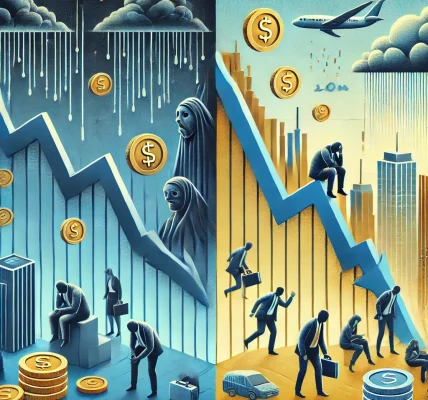Introduction
Startups and small businesses play a crucial role in driving economic growth by fostering innovation, creating jobs, and contributing to overall market competitiveness. They serve as the backbone of many economies worldwide, generating wealth, increasing productivity, and introducing disruptive technologies.
In this article, we explore how startups and small businesses impact economic growth, the challenges they face, and the policies that can support their expansion.
1. Job Creation and Employment Opportunities
a) The Backbone of Employment
Small businesses and startups account for a significant portion of employment in many economies. According to the U.S. Small Business Administration (SBA), small businesses create two out of every three new jobs in the private sector.
b) Providing Opportunities for Skilled and Unskilled Workers
Startups often hire a diverse workforce, from highly skilled engineers and developers to customer service representatives and marketing professionals, providing employment opportunities across various skill levels.
c) Decentralizing Employment
Unlike large corporations concentrated in major metropolitan areas, small businesses and startups contribute to job creation in rural and underserved regions, reducing income disparities and promoting balanced economic development.
2. Innovation and Technological Advancements
a) Disruptive Innovations
Startups are known for introducing groundbreaking ideas and technologies. Companies like Tesla, Airbnb, and Uber were once small startups that revolutionized their respective industries.
b) Encouraging Industry Competition
Small businesses challenge established companies by bringing innovative products and services to the market, forcing larger firms to improve efficiency and innovate.
c) Digital Transformation and Automation
Many startups focus on AI, blockchain, and automation, leading to technological advancements that enhance productivity and global competitiveness.
3. Contribution to GDP and Economic Diversification
a) Increasing Gross Domestic Product (GDP)
Small businesses and startups contribute significantly to a country’s GDP by generating revenue through goods and services.
b) Economic Diversification
Startups foster diversification by entering new industries and sectors, reducing dependence on traditional industries, and strengthening economic resilience.
c) Boosting Export Markets
Many small businesses expand into global markets, promoting exports and enhancing international trade.
4. Challenges Faced by Startups and Small Businesses
a) Limited Access to Capital
One of the biggest challenges for startups is securing funding. Many struggle to access loans, venture capital, or government grants.
b) Regulatory and Compliance Burdens
Excessive regulations, complex tax policies, and bureaucratic red tape can hinder small business growth.
c) Market Competition
Competing with well-established corporations with larger resources can be daunting for startups.
d) Economic Uncertainty
Global recessions, inflation, and financial instability pose risks to startups and small businesses, impacting their sustainability.
5. Government Policies to Support Startups and Small Businesses
a) Tax Incentives and Grants
Governments can provide tax breaks, subsidies, and grants to help startups overcome financial barriers.
b) Access to Credit and Funding
Developing policies that facilitate easier access to loans and venture capital can significantly benefit startups.
c) Reducing Bureaucratic Hurdles
Simplifying business registration, licensing, and compliance requirements can encourage more entrepreneurs to start businesses.
d) Supporting Digital Transformation
Encouraging digital adoption through training programs and financial assistance can help small businesses stay competitive.
6. Future Outlook for Startups and Small Businesses
a) The Rise of Digital Startups
With increasing digitalization, more startups will emerge in fintech, health tech, and AI-driven industries.
b) Sustainable and Green Startups
Eco-friendly startups focusing on sustainable products and services will likely gain prominence in the coming years.
c) Government-Startup Collaborations
Governments worldwide are recognizing the value of startups and implementing policies to foster their growth, ensuring a more robust and diversified economy.
Conclusion
Startups and small businesses are the engines of economic growth, driving job creation, innovation, and industry competition. Despite facing challenges such as limited access to capital and regulatory burdens, they continue to thrive with proper government support and market opportunities.
To sustain their growth, policymakers, investors, and entrepreneurs must collaborate to create an ecosystem that fosters innovation, investment, and long-term economic stability.
Disclaimer
This article is for informational purposes only and does not constitute financial, legal, or investment advice. Readers should consult with professionals before making business decisions.




